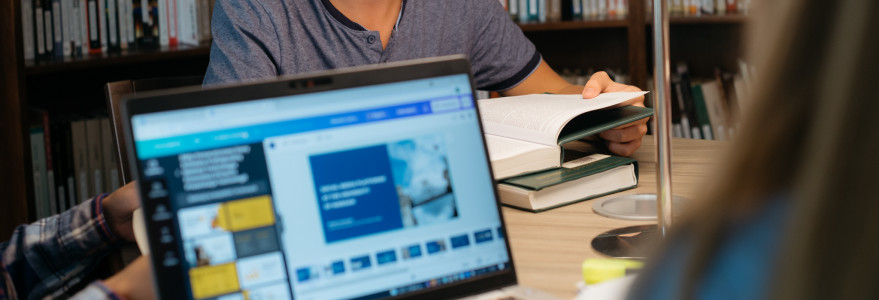Interventions to combat disinformation may inadvertently contribute to increasing citizens’ distrust of all media coverage, including accurate information. This is the conclusion of the research described in “Nature Human Behaviour”. The co-authors of the article are Prof. Tomasz Gackowski, the Director of the Laboratory of Media Studies from the UW Faculty of Journalism, Information and Book Studies, and Prof. Magdalena Wojcieszak from the UW Centre of Excellence in Social Sciences, the winner of the ERC grants (Starting Grant, Consolidator) and the Red Giant under the Excellence Initiative – Research University programme.
The international research team investigated strategies against misinformation in three diverse countries (the United States, Poland, and Hong Kong), and their relevance to the current societal climate, i.e. how can existing interventions be improved so that they do not reduce trust, increase scepticism or foster misperceptions. The particular emphasis was put on fact-checking, media literacy, and coverage of misinformation through practical guidelines for media organisations, the educational sector and policymakers. The obtained results indicate that the tested interventions are successful at reducing belief in false information, but at the same time, they tend to increase scepticism in the credibility of factual information. Individuals who are exposed to all these interventions may become more likely to perceive true information as devious or false. This problem could be solved by implementing new ‘improved’ strategies.
The study showed that hardly any people are exposed to misinformation in their daily life. Yet, fears about the harm from ‘fake news’ have increased in recent years. At the same time, fact-checking practices are flourishing. Main news outlets, such as BBC and CNN, have incorporated fact-checking as part of their business. This aims to prevent rather than correct the potential influence of misinformation by educating the public on how to critically evaluate the quality of information.
Information distrust
The researchers carried out online survey experiments in Poland, Hong Kong, and the United States. The study in each country was conducted from 30th August 2022 to 27th October 2022. The US dataset included a total of 2,008 participants, in Poland – 2,147 participants, and, finally, in Hong Kong – 1,972 participants.
Each participant was randomly assigned to one of six treatment conditions or a control group. Each treatment featured two Facebook posts on the top of the newsfeed on a mock Facebook site, with a standardised number of comments and likes across conditions and with the background functions blurred (see Supplementary Section A for a redacted version of all stimulus materials per country, and https://osf.io/5xc7k/ for the original materials). All survey and stimulus materials were translated by native Polish and Cantonese speakers with minor contextual adaptations for the two countries for the claims and specific sources.
“Today, in the world devasted by many crises, from coronavirus, the economic crisis, to the war in Ukraine, a citizen as a media recipient, deals with various difficulties in the daily ‘media diet’. In the age of dynamically evolving technologies, such as artificial intelligence or robotisation, of increasing numbers of areas in a socio-economic life, emerging new phenomena and effects, such as deepfake, it is easy to become a victim of lies, or even a tool for disinformation in one’s hands. The third decade of the 21st century should be perceived in the context of education for good information. This is a task for universities, but also for regulators and large corporations,” Prof. Tomasz Gackowski explains.
The results of the research work conducted by scientists have been published in Nature Human Behaviour.
The study was carried out by Prof. Tomasz Gackowski from the Faculty of Journalism, Information and Book Studies, the University of Warsaw, and Prof. Magdalena Wojcieszak from the Department of Communication, the University of California. Prof. Wojcieszak is also carrying out the European Research Council (ERC) Consolidator Grant at the University of Warsaw. Her project “Incentivizing Citizen Exposure to Quality News Online: Framework and Tools” (NEWSUSE) aims to explore how social media users can be encouraged to use quality and verified political news and information to minimise polarisation, misinformation, extremism, etc.
Publication details
Emma Hoes, Brian Aitken, Jingwen Zhang, Tomasz Gackowski and Magdalena Wojcieszak, 2024, Prominent Misinformation Interventions Reduce Misperceptions but Increase Skepticism, Nature Human Behaviour, DOI: 10.1038/s41562-024-01884-x



